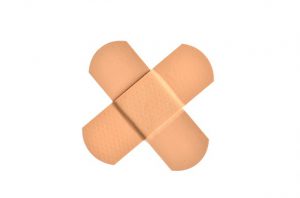61% of American men and 5% of American women state that they have undergone at least one experience that they considered being traumatic within their life. A startling 90% of those who attend treatment in public behavioral healthcare realms report that they have been through a traumatic event. If these disturbances are not worked through properly, and the individual has underlying mental health difficulties and addiction problems, there is a good chance that they will not be in the best of physical health. Other areas of their lives, such as social, occupational, and educational, may also suffer. Unfortunately, by avoiding coping with the misery from the shocking event which the individual went through, the person’s ability to recover can be negatively hampered.

How Can I Tell if My Loved One or I Have a Dual Diagnosis Disorder, Such as PTSD or Addiction?
Going through a physical, witnessed, or emotional trauma does not mean that you will develop post-traumatic stress disorder (PTSD) or any other mental health difficulties. However, depending on the substances you are abusing and which mental health symptoms you are experiencing, there is a chance that getting a psychological evaluation to see if you have a dual disorder diagnosis could aid in your recovery. This is especially true if you have seen that the symptoms you are experiencing are negatively are altering realms of your life, including social, educational, physical health, familial, occupational, and recreational. Going to a doctor and a psychologist to rule out other options, such as prescribed medication side effects, physical health issues, or adjustment disorders, is crucial. It is also essential to get a proper diagnosis to tailor a treatment plan to your individual needs.
Some red flags signaling that a psychological evaluation for dual diagnosis disorders, including PTSD, are:
- The use of illicit substances and alcohol to regulate discomfort or temperament, to reduce anxiety in situations that would otherwise make you feel uncomfortable, to stay attentive, or to block out memories and feelings you would rather not experience.
- Correlations between mental health symptoms and substance or alcohol use. Do you utilize cocaine when you need to stay awake for longer periods of time? Do you smoke pot when you are anxious?
- Do you have a familial history of substance use disorders or mental health disorders?
- Do uncomfortable feelings, such as anxiety or depression, linger even when you are sober?
- Is there a history of trauma or abuse in your past that you have yet to work through?
- Have you been treated for substance use disorders or mental health disorders in the past?
Alternative Rehab Options for Those Diagnosed with Substance Use Disorders or Dual Diagnosis Disorders
Both you and your loved ones deserve the chance to gain freedom from alcohol, opiates, cannabis, stimulants, and other addictive substances. At Discovery Place, we understand the importance of a good support system and have individuals that have experience in sobriety to aid you on your journey. We want to help you gain the skills you need to cope with the symptoms of your co-occurring disorders while remaining drug- and alcohol-free. Doing so can aid you in improved relationships, educational focus and achievement, occupationally, and with a wide variety of other life goals. Discovery Place of Burns, Tennessee is just a phone call away. Contact us today at 1-800-725-0922!

